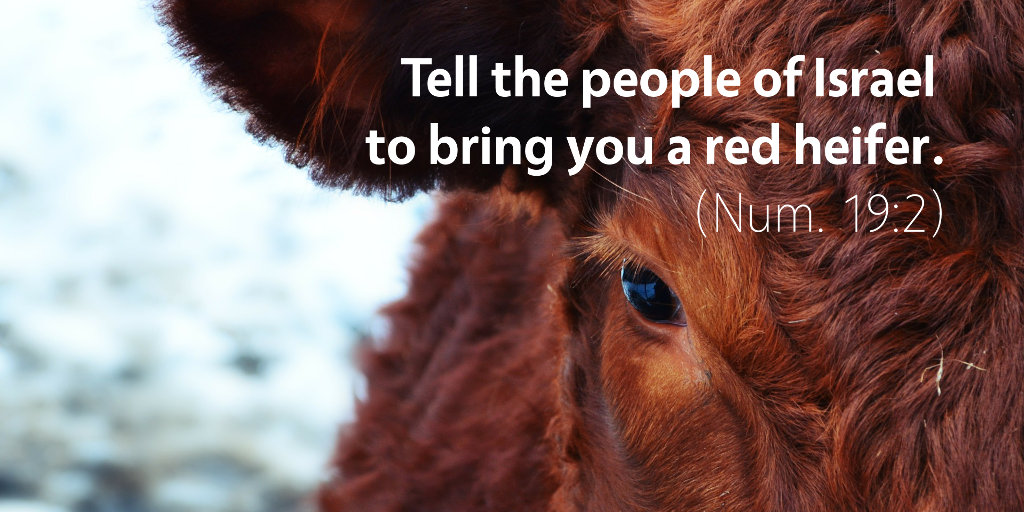Bible Readings for May 10th
Numbers 19 | Psalms 56–57 | Isaiah 8 | James 2
As in Numbers 5:1–4, Yahweh commands again here in Numbers 19 that anyone who has any contact with the dead must remain outside the camp until he or she has been purified. The context of Numbers 19 is interesting, since in the next chapter, Numbers 20, we read about the deaths of both Miriam and Aaron. It is possible that the older generation of people who set out from Egypt are beginning to die off, and Yahweh wants the people of Israel to know exactly how they are to deal with their increasing contact with the dead.
So, in Numbers 19, Yahweh offers the solution for how Israelites who have come in contact with the dead may be cleansed: although the Israelites were still considered unclean for seven days (Num. 19:11), they could be cleansed by washing with water on the third and seventh days of their uncleanness (Num. 19:12). This would not be just any water, but water mixed with the ashes of a burnt red heifer (Num. 19:10)—and not just any red heifer, but a red heifer “without defect, in which there is no blemish, and on which a yoke has never come” (Num. 19:2).
As we have already seen a few times in the books of Leviticus and Numbers, Yahweh hates death, and death defiles his holiness. Death was never meant to be a part of creation, but rather it invaded God’s creation as a horrific byproduct of sin.
Providing for the ashes of the unblemished red heifer, then, is yet one more layer to the complex framework of purity and holiness, since it is no small thing to dwell in the presence of God. Yahweh saw that cleansing from contact with the dead would be a frequent need, and so he commanded that his people have ready access to a pile of red heifer ashes, which served functionally as an “instant sin offering,” available in a clean place outside the camp (Num. 19:9).1
But even though the system Yahweh establishes is perfect, Yahweh’s people are not. They are unable to keep the demands placed on them by this rigorous plan for cleanness in the presence of Yahweh, and Yahweh will eventually see fit to introduce a better, more permanent solution for making his people clean and holy before him.
Therefore, the author of the book of Hebrews addresses the ashes of the heifer directly: “For if the sprinkling of defiled persons with the blood of goats and bulls and with the ashes of a heifer sanctifies for the purification of the flesh, how much more will the blood of Christ, who through the eternal Spirit offered himself without blemish to God, purify our conscience from dead works to serve the living God” (Heb. 9:13–14).
Through Christ, you have been cleansed so that you might serve the living, holy God.
1 Gordon J. Wenham, Numbers, TOTC (Downers Grove, IL: Intervarsity Press, 1981), 164.
Podcast: Play in new window | Download (5.0MB) | Embed
Subscribe: Apple Podcasts | RSS | More

Scripture quotations are from The Holy Bible, English Standard Version copyright © 2001 by Crossway Bibles, a division of Good News Publishers. Used by permission. All rights reserved.


